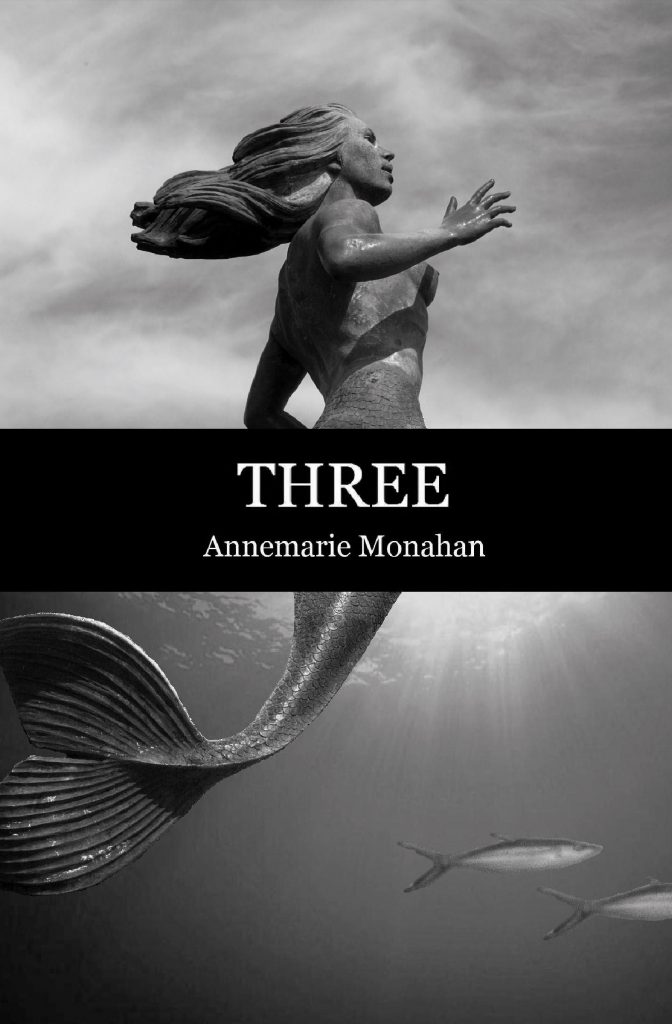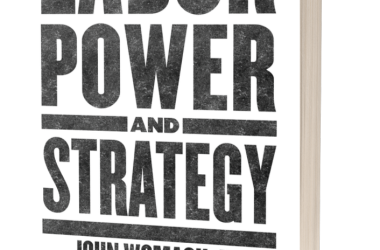Feminism: The Liberation Movement of Womyn
May 3, 2012
I’m the kinda gal that hungers for good lesbian feminist fiction more than I do for a delicious, home-cooked meal. Thus, I was incredibly happy to discover Annemarie Monahan’s debut novel, Three. It is political but entertaining, gently humorous while tackling serious subjects. In other words, Three has serious value as a novel that is both lesbian and feminist.
Three follows the stories of three women, each whose lives intersects with the others. Antonia works as a phone psychic. Reading her “psychic” phone conversations with the women who call is a hoot. However, most of Antonia’s chapters revolve around the past part of her life, where she and her partner helped build an all-womyn utopia. Her former partner, Josephine, was a lesbian with a vision . . . at least for some time. In Josephine’s voice pours out some of Monahan’s most overtly politically writing. At one point, Josephine roars to a crowd of women, “Why do we need a women’s nation? Aren’t there enough nations, enough divisions? First, let me tell you, there’s only one nation now, the nation of men” (61). And thus, Josephine and Antonia go on, recruiting women to take part in building The Dream.
The second woman, Katherine, is an alternative health physician. The type of alternative health that she practices is not clear, but from the fact that she brings up the names of homeopathic remedies at one point, one might guess that at least part of her practice incorporates homeopathy. Perhaps I found Katherine’s sections to be some of the strongest because when she’s not writing, Monahan is also a homeopath and chiropractor. Like Antonia (and Monahan), Katherine is also lesbian. Katherine is currently single and decides to get in touch with an old flame from her college years. Reading Katherine’s story brought up many memories for me, as I imagine it will for all readers, lesbian or not.
Kitty is the only woman of the three main characters who considers herself heterosexual. After all, she is married with children. But after finishing classes at the local college, the professor she idolizes kisses her. Suddenly her identity as a heterosexual, married woman, is thrown into question. I find Kitty’s character to be incredibly realistic; some of her life story is eventually detailed, so we come to have a better understanding of why she is who she is.
Fiction is an amazing form to communicate political messages. Gloria Steinem recently commented on the power of women sharing their stories with one another as essential to movement building. In a way, that is what a good novel does; the stories from a novel come to represent real women’s stories, which they well could be. A good author helps the reader explore which facets of the characters relate to herself, and which to her friends. Could that be me, if my life had only gone a little differently?
Three is a tale of “what if?” What if I asked out that girl when I was in high school? Where would I be now . . . and where would she be? We all have “what if’s,” but we don’t generally have the chance to explore them. This book inspires us to consider chance . . . and choice.
One such chance/choice encounter occurs when a married women decides to sleep with another women. Monahan really shows off her writing ability when she crafts a love-making scene between the two women. I can’t copy the whole scene here (that would be plagiary, after all), so I’ll have to wet your appetite with a few lines: “Down. Uncovering, we marvel at the mirror of each other. Prints from plate, two echoes from one girl’s shout. You trace every silver line, the stretched seams of our hips, our belly. Accepted, I cease to be ashamed. What fragments can she still read there?” (280). Monahan portrays what it can be like for two women to make love, one for the first time with a woman.
Three has something for everyone: the lesbian who doesn’t (yet) consider herself a feminist, the heterosexual feminist, who can grow from lesbian literature, as from feminist literature, and of course, the lesbian feminist.
I am quite confident regular readers of this blog will be pleased with Three. Monahan sells it directly from her website here. If you must purchase it on Amazon, the page is here.
Because I yearn for good lesbian, feminist, and lesbian feminist fiction, I am wondering what your favorite novels of these genres might be? Anything I and others should know about?






